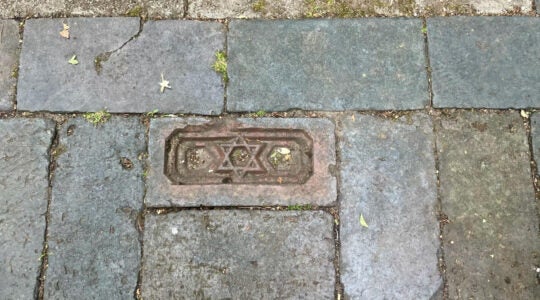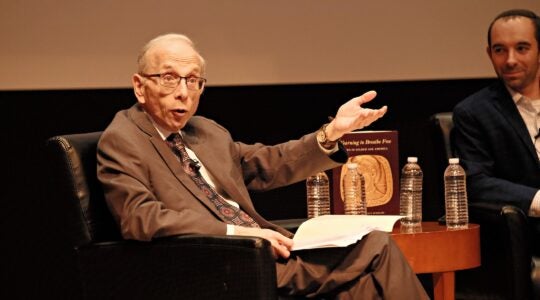For many American Jews who love Israel, Mitt Romney said all the right things this week during his visit to the Jewish State. Standing with the Old City of Jerusalem as a dramatic backdrop for his major address on Sunday, he did not parse his words, asserting that Jerusalem is the capital of Israel, that one of his first moves in office if elected President would be to move the American Embassy from Tel Aviv to Jerusalem and that he would unabashedly espouse his unwavering support for Israel.
Of more substance, he asserted that Israel should do whatever it takes to thwart Iran’s nuclear program, a clear indication that he would back a military strike, if deemed necessary.
Campaign promises can be ephemeral, but it was certainly bracing to see the presumptive Republican presidential candidate put his marker down for all the world to see that he stands with Israel, with no qualifying statements, hesitation or attempts at evenhandedness. And it was not surprising to see the immediate and visceral reaction among Palestinian leaders who insist that Jerusalem should be the capital of their hoped-for future state, railing against Romney’s pronouncements.
American presidents have long sought to walk a delicate diplomatic line when it comes to the Israeli-Palestinian conflict, offering up full support to Israel while calling for two states, side by side, and insisting Washington can and must play the role of midwife and intermediary in negotiations between the two parties.
Is it really possible to be both an advocate and fair-minded mediator?
Romney’s full-throttle support of Israel — and the Palestinian response of unfair bias — offer up a hint of how the status quo in these long-failed diplomatic efforts, from Oslo to Annapolis, might be shaken up under a Romney presidency. The prospects are thrilling for those who argue that the old formula has failed and a bold new pro-Israel approach is required and chilling for those who fear the complete collapse of whatever fragile relationship has been established on the path of negotiations, with the prospects for war increased.
What is clear is that there is still a long way to go from here to November, and it would be instructive to hear more details from both Romney and President Obama about what they would do to ease growing Mideast tensions.
The New York Jewish Week brings you the stories behind the headlines, keeping you connected to Jewish life in New York. Help sustain the reporting you trust by donating today.




